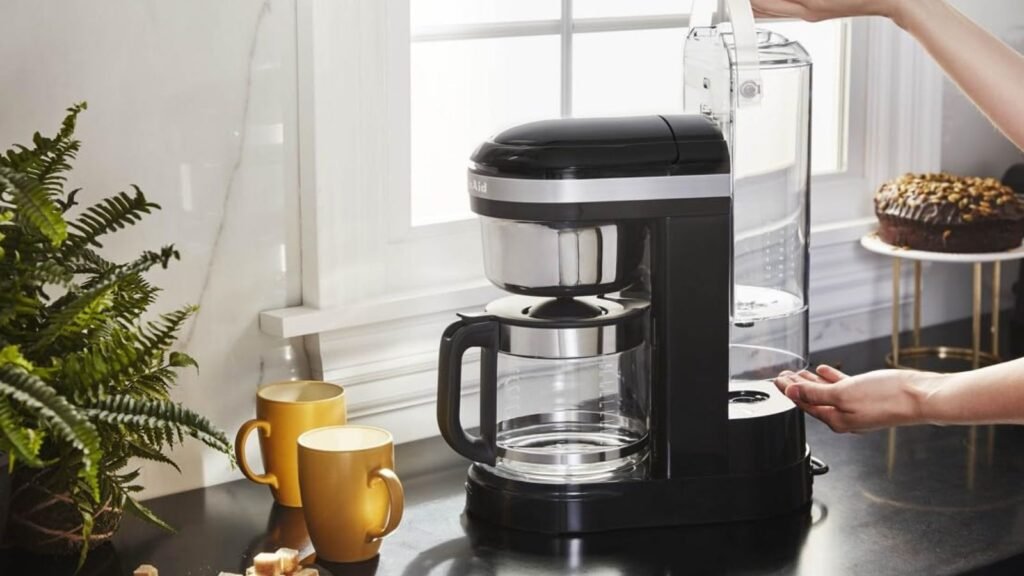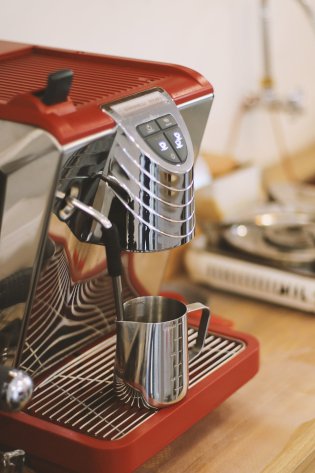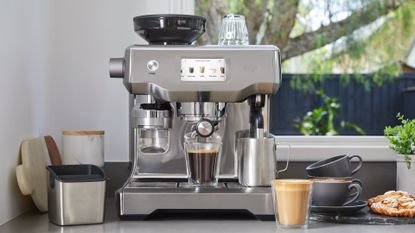Have you ever wondered how often you should replace your coffee maker? It’s a question that many coffee enthusiasts ponder as they savor their morning brew. In our quest for the perfect cup of coffee, having a reliable coffee maker plays a crucial role. However, like all appliances, coffee makers don’t last forever, and understanding when to replace them can save you from a dismal coffee experience and significant inconvenience.
Understanding the lifespan of your coffee maker and recognizing the signs it might be time for a replacement can ensure you continue to enjoy your coffee to the fullest. Let’s explore these aspects in greater detail.
Average Lifespan of a Coffee Maker
Most coffee makers have an average lifespan that depends on various factors, including the brand, model, usage, and maintenance. On average, you can expect the following:
Typical Lifespan by Coffee Maker Type
| Type of Coffee Maker | Average Lifespan |
|---|---|
| Drip Coffee Maker | 5-10 years |
| Espresso Machine | 5-15 years |
| Single-Serve Brewer | 3-5 years |
| French Press | Indefinite |
Understanding these lifespans can help you gauge when your coffee maker might be due for replacement.
Factors Impacting the Lifespan of Your Coffee Maker
Several factors can affect how long your coffee maker will last. It’s crucial to be aware of these to maximize the longevity of your machine.
Frequency of Use
How often do you use your coffee maker? Daily use can wear down the components over time, leading to a shorter lifespan. In contrast, occasional use might mean your coffee maker lasts longer.
Quality and Brand
Higher-end brands generally offer better durability, resulting in a longer-lasting coffee maker. Investing in a reputable brand can often mean fewer replacements in the long run.
Maintenance and Cleaning
Regular maintenance and proper cleaning routines can extend the life of your coffee maker. Residue buildup, especially from hard water, can damage the internal components. Descaling and thorough cleaning are essential for longevity.
Water Quality
Using filtered or bottled water can prevent mineral deposits from building up inside your machine. Hard water is notorious for shortening the life of coffee makers due to scale buildup.

Signs Your Coffee Maker Needs Replacement
Even with the best care, there comes a time when every coffee maker needs to be retired. Recognizing the signs early can save you from a disappointing cup of coffee.
Performance Issues
Is your coffee tasting weaker or taking longer to brew? This could be an indication that your machine is failing. Declining performance is a clear sign it might be time for a replacement.
Leaks and Malfunctions
Leaking water or coffee grounds in your brew can signal internal issues. Persistent problems, despite regular cleaning and minor repairs, often mean it’s time to replace the coffee maker.
Electrical Issues
Any signs of electrical problems, such as a flickering display, strange noises, or inconsistent power, should be taken seriously. Electrical issues can be dangerous and usually indicate that the coffee maker should be replaced.
Visible Wear and Tear
Cracks, discoloration, and general wear and tear on the exterior and interior components are signs that your coffee maker has reached the end of its life.
Maintenance Tips to Extend Lifespan
Proper maintenance is key to getting the most out of your coffee maker. Here are some tips to help you extend its life.
Regular Cleaning
Clean your coffee maker after each use to prevent residue buildup. Pay special attention to the carafe, filter basket, and water reservoir.
Monthly Descaling
If you have hard water, descale your coffee maker monthly. Use a descaling solution or a mixture of vinegar and water to remove mineral deposits.
Use Filtered Water
Filtered water reduces mineral buildup and improves the taste of your coffee.
Replace Parts as Needed
Some components, like the filter or gasket, may wear out before the entire machine. Replacing these parts can prolong the overall lifespan of your coffee maker.
Avoid Overfilling
Overfilling the water reservoir can cause leaks and damage the machine. Stick to the recommended water levels.

When to Upgrade Your Coffee Maker
Sometimes, it’s not just wear and tear that prompts the need for a new coffee maker. Technological advancements and your changing coffee preferences can also be factors.
Technological Improvements
Newer coffee makers come with advanced features such as programmable settings, Wi-Fi connectivity, and improved brewing systems. Upgrading can enhance your coffee experience.
Changing Coffee Preferences
Your taste in coffee might evolve over time. A shift from drip coffee to espresso or enjoying single-serve convenience makes upgrading your coffee maker a consideration.
Environmental Concerns
Modern coffee makers tend to be more energy efficient and environmentally friendly. If sustainability is a priority for you, this could be another reason to upgrade.
Choosing the Right Replacement Coffee Maker
When the time comes to replace your coffee maker, choosing the right one is essential. Here are some factors to consider:
Type of Coffee You Enjoy
Different coffee makers excel at different types of coffee. Drip coffee makers are great for regular coffee, while espresso machines are ideal for those who love a strong cup. Single-serve brewers offer convenience, and French presses provide a rich, full-bodied flavor.
Budget
Determine your budget before shopping for a new coffee maker. Prices can range from under $50 for basic models to over $500 for high-end machines.
Features
Consider the features that are important to you. Do you want programmable settings, a built-in grinder, or a milk frother? Knowing what you need can help narrow down your options.
Size and Kitchen Space
Ensure the coffee maker fits your kitchen space. Measure the area where you plan to place it and consider the overall footprint of the machine.
Brand and Warranty
Research reputable brands and check if they offer a warranty. A good warranty can give you peace of mind and potentially save you money on repairs.

Making the Most Out of Your New Coffee Maker
Once you’ve chosen your new coffee maker, making the most out of it involves some best practices.
Read the Manual
Each coffee maker is different. Reading the manual helps you understand how to use and maintain your specific model.
Experiment with Settings
Take time to experiment with different settings to find your perfect brew. Adjustable temperature, brew strength, and other settings can make a significant difference in taste.
Invest in Quality Coffee
The quality of your coffee beans makes a huge difference. Invest in good-quality coffee to truly enjoy your new coffee maker.
Maintain Regularly
Follow the same maintenance routines you did with your previous coffee maker. Regular cleaning and descaling ensure longevity and optimal performance.
Conclusion
When pondering how often you should replace your coffee maker, consider the type of machine, how well it’s maintained, and any decline in performance. Paying attention to these factors ensures you enjoy a consistently great cup of coffee. By knowing the signs of wear and tear, practicing good maintenance habits, and considering an upgrade when necessary, you’ll maximize the lifespan and performance of your coffee maker, guaranteeing a delightful coffee experience every day.
Remember that a well-maintained coffee maker not only extends its lifespan but also enhances the flavor and quality of your coffee. So, take good care of your coffee maker and enjoy every sip!

